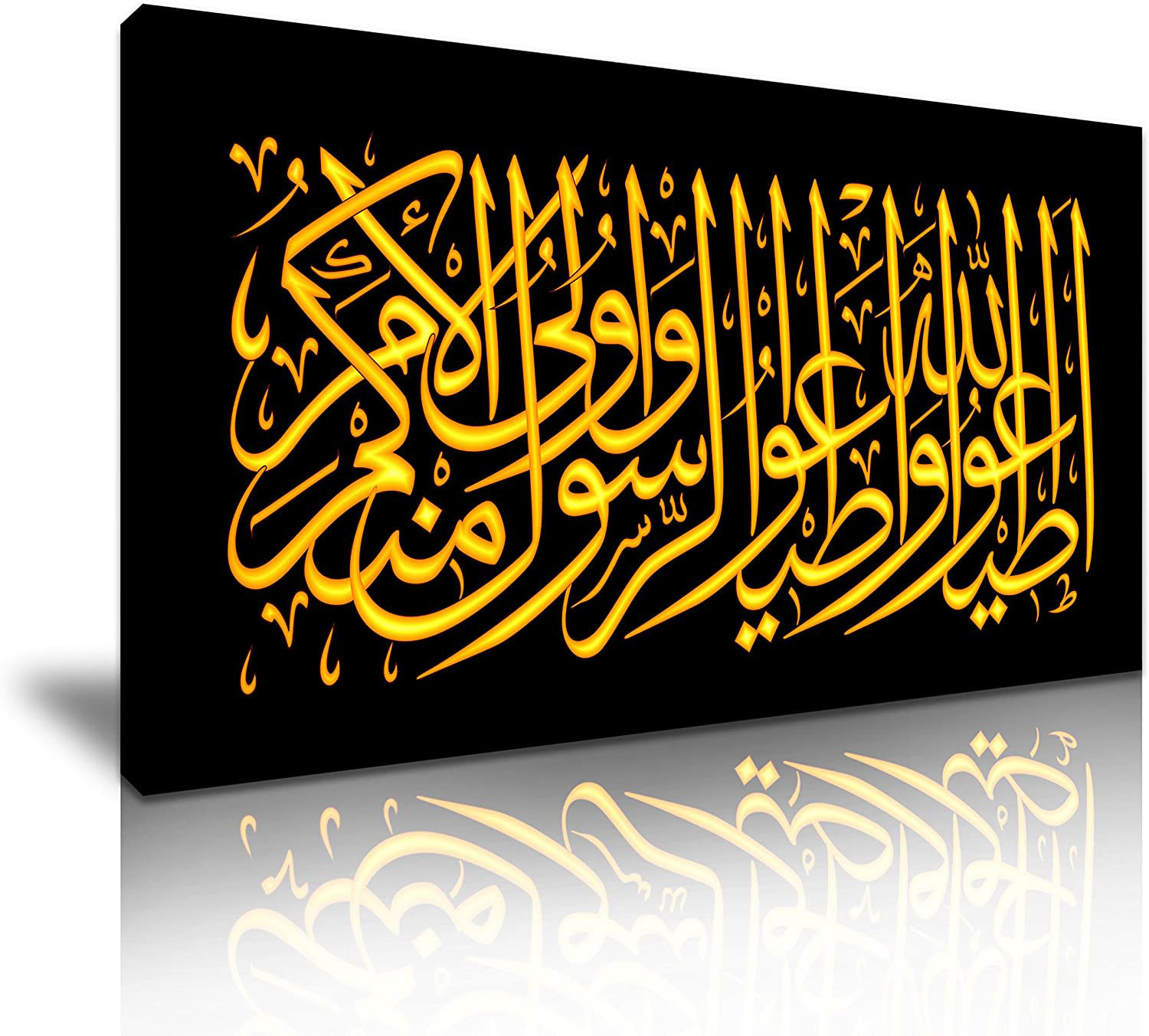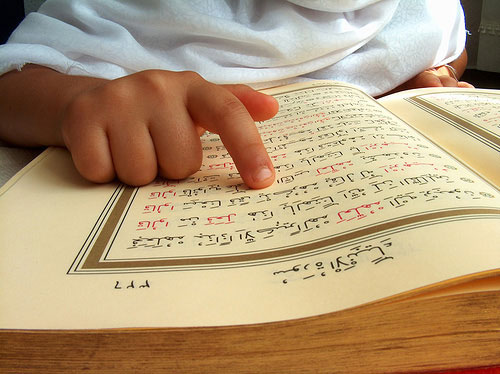A historical look at the interpretation of the Qur'an
Considering the nature of the text of the Holy Quran, the need to interpret it has always existed since the revelation of this divine book and its necessity is felt.
The concept of the word interpretation
As you may be more or less aware, interpretation of the sciences related to the topics of the Qur'anic field is considered. This article means that the reason for the emergence of this science was the necessity and need to deeply understand the verses and traditions of the Holy Quran. From a conceptual point of view, interpretation has two meanings:
1- Some experts believe that this word is derived from the root of Fasr, which means to explain an incomprehensible matter. In fact, the word Tafsir is an exaggerated form of the word Fasr and it means revealing the meaning of a subject that is accompanied by reasoning, effort and ijtihad.
2- Some others believe that this word is derived from the word travel. Therefore, it means to discover and reveal the deep meaning in an article or saying.
According to the previously mentioned meanings, it can be claimed that the interpretation of the Qur'an is a collection of both definitions. Because the religious scholars used taql and ijtihad at the same time to interpret this divine book and finally succeeded in extracting the deep meanings of the verses.

Sources of interpretation of the Qur'an
A look at the history of interpretation of the Qur'an
The transmission of divine commands in verses and hadiths has been done in a comprehensive and codified manner. For this reason, the need for a person who is knowledgeable about divine affairs to clearly express the verses is one of the basic needs of Muslims. Throughout history, commentators such as the Prophet and imams have always tried to put people on the right path of creation by revealing the deep meanings of the verses. At the same time, the existence of polytheist, infidel, ignorant and biased enemies causes the interpreted concepts to not be transferred to the next generations in the right way. Considering the deep link between interpretive sources and people's beliefs, it is very important to ensure the validity of the contents expressed in them.

Al-Mizan commentary books
Qur'an interpretation sources in the past few decades
Considering the constant need of humans to have divine concepts, collecting and writing interpretive books has always been one of the priorities of religious scholars. One of the religious scholars who paid special attention in this field was the late Allamah Seyyed Mohammad Hossein Tabatabai. Allameh Tabatabai was taught religious sciences, jurisprudence and Arabic literature since his childhood. This issue caused him to grow intellectually and ijtihad. The books of Tafsir al-Mizan were compiled and written by this eminent thinker, mystic and philosopher in the history of Islam, and now with a new edition, they are available to those who are interested in Quranic sciences. These books contain deep concepts from the verses and traditions of the Holy Quran, which were written based on the ijtihad and knowledge of this great man.
last words
Regardless of the importance of this book throughout the history of Islam, one of the things that increase people's interest in reading and reading is easy and unrestricted access to reading all kinds of books. In this regard, and in order to facilitate the access of readers interested in authentic educational and religious books, Parnian Andish publishing website has made serious efforts in selling electronic books along with audio books in addition to printed and physical versions. The ease of using these books by all kinds of electronic devices such as tablets, e-readers, mobile phones, laptops and personal computers has caused problems such as the difficulty of transportation and time constraints to be solved well.
Allameh Seyyed Mohammad Hossein Qazi Tabatabai Tabrizi (born in Tabriz 1281 - died on November 24, 1360 Qom) known as Allameh Tabatabai, a famous cleric, a great philosopher and a hard-working and deep-thinking Iranian writer, one of the great Shia taqlid authorities and one of the famous teachers of the seminary. It was considered Qom. His childhood and adolescence were spent in Tabriz. He lost his mother at the age of five and his father at the age of nine. His father's executor sent him and his only brother Mohammad Hassan Elahi Tabatabai to school. He studied the Qur'an and Persian literary books in elementary school, then studied religious sciences.
In addition to learning literature, he learned calligraphy techniques under the supervision of calligrapher Mirza Alinqi. Elementary education could not respond to his rich taste and abundant interest, so he went to Talebiyah School in Tabriz and studied Arabic literature, translation sciences, jurisprudence and principles and studied various fields of Islamic knowledge. He himself remembers his studies as follows: "At the beginning of my studies, when I was only employed, I was not very interested in continuing my studies, and therefore I did not understand everything I was studying, and I spent four years like this. After that, God's providence suddenly surrounded me, changed me, and I felt a kind of fascination and impatience towards studying for perfection. So that from that day until the end of my studies, which lasted for almost seventeen years, I never felt tired or discouraged about education and thinking, and I forgot the ugly and beautiful of the world and considered the bitter and sweet events as equal. I completely dismantled non-academic society. In terms of food, sleep and other necessities of life, I was satisfied with the minimum necessary and studied the rest. It used to be a lot, especially in the spring and summer, when I spent the night studying until the sunrise, and I always studied tomorrow's lesson the night before, and if there was a problem, I would solve it with every suicide, and when I attended the lesson From what the teacher said, I was already clear and I never brought the problems and mistakes of the lesson to the teacher."
He also went to Najaf with his brother and studied religious sciences in Najaf for ten years. During this period, he learned mathematics from Seyyed Abulqasem Mousavi Khansari, the grandson of Seyyed Abulqasem Khansari, and learned jurisprudence and principles from professors such as Mohammad Hossein Naini and Mohammad Hossein Gharavi Isfahani. His teacher in philosophy was Hakim Mutala, Seyyed Hossein Badkobei. He also studied theology, interpretation of the Qur'an to the Qur'an, wisdom and philosophy, mysticism, ethics and hadith jurisprudence from Seyyed Ali Qazi Tabatabai. While he was studying in Najaf, he was forced to return to Iran due to the scarcity of livelihood and the lack of income from his agricultural property in Tabriz, and for ten years after that, he worked in agriculture in the Shadabad village of Tabriz. And agriculture has passed the time.
About this period of the fruitful life of this great master of religion and Islamic sciences, his son Seyyed Abdul Baqi Tabatabai says: "I remember well that my father was constantly busy throughout the year and his work in the cold season during the rain and Monsoon snows, while holding umbrellas or wearing skins, was considered normal.
Lack of ambiguity and exaggeration in the meanings of the verses and the origin of differences
Among all the verses of the Qur'an (which are more than several thousand verses), we do not find a single verse that is exaggerated and superstitious in its meaning, so that the reader's mind gets confused and confused in understanding its meaning, and how could it not be so and However, the Qur'an is the most eloquent Arabic language, and the most basic condition of eloquence is that it does not have any obfuscation or superstition, and even those verses that are considered to be similar to the Qur'an, such as the abrogated verses and the like, are very clear in their meaning. And it is clear and its similarity is due to the fact that we do not know what it means, not because the meaning of its appearance is unknown. Therefore, this difference is not found in the meaning of the words, but all of them are found in the difference in the example of the words, and each religion and profession have taken the words and sentences of the Qur'an to an example, which the other does not accept. From the imaginary and affirmative signification of the word, one thing is understood and the other is something else.
The reason for the material meanings of the words imposed on the mind
The explanation that human nature and habit (just as it has been said) causes the mind of a person to overtake its material meaning when hearing a word or a sentence, and before any other meaning, that material meaning or its adjuncts The mind comes, and we humans, from the place where our bodies and our physical powers, as long as we are in this material world, are immersed in matter, and it is all about matter, so for example, if the word life, and science, And when we hear power, hearing, sight, speech, will, satisfaction, anger, creation, order, and the like, the material meaning of these immediately comes to our mind, the same meaning that comes from We know these words in ourselves. And also when we hear the words heaven, and earth, and tablet, and pen, and throne, and seat, and angel, and angel's wings, and Satan, and his troops, from his infantry and cavalry, natural and material examples. It overtakes our mind, and enters our understanding before any other meaning.
Dear Visitor; Please take a look at the list of 50 most visited websites in the world wide web: YouTube, Facebook, google, translate, gmail, weather, amazon, Instagram, cricbuzz, Hotmail, wordle, satta king, twitter, yahoo, yandex, sarkari result, Netflix, google maps, yahoo mail, roblox, whatsapp, NBA, BBC news, outlook, pinterest, flipkart, eBay, omegle, live score, tiktok, canva, ipl, premier league, hava durumu, ibomma, walmart, twitch, ikea, shein, linkedin, home depot, e devlet, lottery, snaptik, cricket, serie a, nfl, spotify, fox news, amazon prime; There is no book publishing related or project management website in this list. We are working hard to bring these important issues to the center of concentration of societies. Please introduce us via social media, share our website with others and help us to make our world a better place to live. Best Regards.


Write your opinion